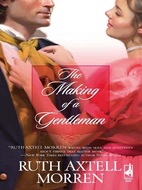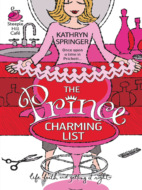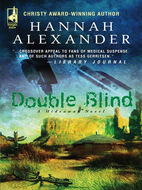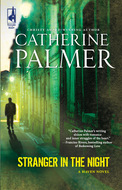Książki nie można pobrać jako pliku, ale można ją czytać w naszej aplikacji lub online na stronie.
Czytaj książkę: «Million Dollar Dilemma»
Praise for
MILLION DOLLAR DILEMMA
“Baer’s reputation—bolstered by the popular novel The Whitney Chronicles—means that this new novel is likely to sell briskly, especially since the eponymous Whitney makes an appearance among its cast of supporting characters.”
—Publishers Weekly on Million Dollar Dilemma
“Million Dollar Dilemma is a million-dollar treasure you must read! And give a wonderful gift to a friend.”
—Armchair Interviews
“Million Dollar Dilemma is a fabulously rockin’ inspirational romance. Fans of inspirational, chick-lit and contemporary romance will enjoy this book.”
—CataRomance Reviews
“For an enjoyable, inspirational, chick-lit reading experience, be sure to check out Million Dollar Dilemma.”
—romancejunkies.com
“Million Dollar Dilemma is sophisticated in structure and story, but sweet and accessible.”
—NBC10.com
Million Dollar Dilemma
Judy Baer
MILLS & BOON
Before you start reading, why not sign up?
Thank you for downloading this Mills & Boon book. If you want to hear about exclusive discounts, special offers and competitions, sign up to our email newsletter today!
Or simply visit
Mills & Boon emails are completely free to receive and you can unsubscribe at any time via the link in any email we send you.
For my mother and in remembrance of my father, who both read to me constantly when I was a child. I learned the wonder and joy of books early. Thank you. I love you!
A man who works hard sleeps in peace. It is not important if he has little or much to eat. But a rich person worries about his wealth. He cannot sleep.
—Ecclesiastes 5:12
CONTENTS
CHAPTER 1
CHAPTER 2
CHAPTER 3
CHAPTER 4
CHAPTER 5
CHAPTER 6
CHAPTER 7
CHAPTER 8
CHAPTER 9
CHAPTER 10
CHAPTER 11
CHAPTER 12
CHAPTER 13
CHAPTER 14
CHAPTER 15
CHAPTER 16
CHAPTER 17
CHAPTER 18
CHAPTER 19
CHAPTER 20
CHAPTER 21
CHAPTER 22
CHAPTER 23
CHAPTER 24
CHAPTER 25
CHAPTER 26
CHAPTER 27
CHAPTER 28
CHAPTER 29
CHAPTER 30
CHAPTER 31
CHAPTER 32
CHAPTER 33
CHAPTER 34
CHAPTER 35
CHAPTER 36
CHAPTER 37
CHAPTER 38
CHAPTER 39
CHAPTER 40
CHAPTER 41
CHAPTER 42
CHAPTER 43
CHAPTER 44
CHAPTER 45
QUESTIONS FOR DISCUSSION
CHAPTER 1
Cassia, I’m collecting again. Want to chip in five bucks? If so, leave it in the envelope in my desk. Hope it’s a lucky weekend. See you Monday! Stella
Who is having a baby this time?
Sometimes I wonder why I work for a living. Is it to support myself or the office kitty every time someone in customer service or any other department has a baby…or a wedding…a funeral…a promotion…or a zit?
We are the most fertile, engage-able, promote-able and magnanimous division of Parker Bennett Manufacturing and buy more gifts and flowers than the rest of shipping and receiving, human resources and accounting offices put together.
It doesn’t hurt that Stella Olson prefers shopping online as an office-related activity to doing her actual work as receptionist and secretary. Of course, I enjoy being part of a group so generous and thoughtful. I like giving things away. Proverbs 11:24 and all.
Some people give much, but get back even more. But others don’t give what they should and they end up poor.
My Sunday-school teacher—who also happened to be my mother—made a big deal out of that. She talked a lot about how giving freely could lead to good things and being stingy and hoarding things wasn’t all it was cracked up to be. Maybe she was just trying to get my sister and me to share toys, but the lesson went far deeper in me.
At first I dumped all my pennies into the collection plate as insurance that nothing terrible would happen to me, but as I got older I realized that I hadn’t purchased any heavenly health insurance after all.
I’m a P.K., a preacher’s kid—or if I want to get fancy, a T.O., a theologian’s offspring. Money never meant much to us. We always had good food to eat, a nice parsonage to live in and anything else we seemed to need. Now Dad is happy as a clam serving a three-point parish in Wyoming, sometimes eating three potluck dinners in a single day and turning a deaf ear to my mother’s lectures on the dangers of high blood pressure. He’s been known to have coffee and homemade cookies as many as seven times in a row when he’s visiting his parishioners and, because he looks so cuddly with those extra chins, they keep on feeding him. He’s oblivious to all but his flock and his faith and is often difficult to engage in conversations about anything other than baptism, church council, salvation or the Sunday-school board of education. Mom, fortunately, loves being Sunday school superintendent, leading Bible study and directing Christmas pageants. They’re a little distant at times, but that’s probably natural. They spent a lot of time in the mission field while I was growing up, and when they were gone, my sister and I lived with our grandparents.
I blame my grandfather, Benjamin Carr, for my proclivity to donate money to every good cause. I can still envision him—his perfectly groomed white hair, fastidiously trimmed mustache and penetrating gray eyes that pierced right to my soul. I can also hear his rumbling, sonorous voice quoting Luke 6:38. “Whatever measure you use in giving—large or small—it will be used to measure what is given back to you.” He led by example—to my grandmother’s dismay when she needed grocery money and found her cookie jar empty. But as she reminded us time and time again, God always provides.
I’ve missed my grandfather every day since he passed 10 weeks ago. Grandma assures me that with time, the pain will lessen. I’m still waiting.
Gramps was a big fan of the Bible first, and of Winston Churchill second. Spiritual, brilliant and with a keen interest in the history of Great Britain, Gramps spent the last fifty years of his life in Simms, South Dakota, a speck-in-the-road town that hadn’t substantially changed since the day he and his nineteen-year-old bride arrived, fresh faced and eager, to build a new church.
Gramps believed that Christians are givers—of time, talents, compassion and money. When anyone remarked on his proclivity for keeping so little for himself that he could barely make ends meet, he responded with a quote from Winston Churchill. “We make a living by what we get, but we make a life by what we give.” Even those doubting Thomases who took issue with the Bible were usually willing to respect old Winston.
I sighed and turned to stare at Stella’s desk.
I’m new to this office and to Minneapolis, Minnesota. I need all the friends I can get. Besides, I take pleasure in the celebrations as much as anyone. I love a good party.
I dug deep to find five one-dollar bills in the bottom of my worn faux leather purse and opened the desk drawer. I need a new purse, but right now I don’t have anything to put into it—or to pay for it with, either. What’s more, Grandpa Ben praised frugality so much that I actually get more joy out of not spending money. Weird, I know—a twenty-eight-year-old woman who doesn’t like to shop.
I peered inside the desk drawer. She’s meticulous, that Stella—I have to give her that. Every nail-polish bottle is arranged in order, descending from the dark rum-brown to the pale pink haze. Her pens, one of every color except black, which she says is depressing, are also tidily organized. She has lipstick, breath spray, mascara, blush and foundation stored where everyone else keeps their sticky pads and paper clips.
I suppose that’s what happens when you are a beautiful Scandinavian with hair the color of lemon juice, flawless porcelain skin, blue-violet eyes that change from the color of a peaceful sea to the angry violet of a nasty bruise in a nanosecond. Stella wants to be a model or an actress, but until she hits the big time she also wants to make a living—hence her receptionist position at PB Manufacturing. She’s nearly six feet tall and has a presence that terrifies most men. She says this is a great filter—only the most fearless dare approach her.
Stella also has a private-investigator friend who is always giving her advice—or making her more mistrustful, depending how one looks at it. A woman like Stella, who can have any man she wants, needs a screening system of some sort, I suppose. She’s not paranoid like another of our coworkers, but her philosophy is that all men are guilty until proven innocent.
There, right up front where no one could miss it, was her collection envelope with “Fun Money” printed on the flap. More fun when you’re on the receiving end of it, I imagine. I stared into my now-empty purse.
“Sorry, Winslow, you’ll have to wait one more week for your pedicure.” I glanced at the framed photo on my desk of my enormous, taffy-brown golden retriever/Old English sheepdog as I spent the money I’d been saving for his trip to the grooming parlor. I named him after Winslow Homer, the painter who first used watercolors to paint significant art. Although Homer primarily painted the sea, one canvas, The Rustics, always reminds me of Simms, the place I still call home. Despite his pink, lolling tongue and patient, benevolent expression, Winslow won’t be happy about waiting. He’s almost as vain as Stella, and loves coming home smelling like doggy perfume and having a new kerchief around his massive neck. My ninety-day probation period can’t be over soon enough for me. That’s when I get a raise that will bring me out of poverty level.
Ever since I moved to the twin cities of Minneapolis-St. Paul, I’ve been reeling from sticker shock. In Simms I could buy a great little house with a garden and double-car garage for a third of what I’m paying here for a diminutive, overcrowded second-floor apartment in a sixty-year-old building with as many creaks and groans as the retired ranchers who populate Fannie’s Coffee Shop on Saturday mornings.
As I slipped my five dollars into the envelope and closed the drawer, the phone rang. For me, terminally curious, ignoring it is never an option.
“Parker Bennett Manufacturing. This is Cassia. May I help you?”
“Can you talk?” The voice on the other end of the line was rich, throaty and full-bodied, like French roasted coffee laced with heavy cream.
“It’s five o’clock on Friday afternoon, Jane. You don’t have to whisper. The exodus from here started at three.”
I imagined my perpetually pleasant, five-foot-one-inch sister leaning conspiratorially into the phone, her bobbed hair swinging over her round cheeks and her brown eyes sparkling. I’m the “redheaded stepchild” of my family—everyone else has plank-straight hair that’s a lovely traditional shade of brown, and eyes to match. I, on the other hand, look as if I was sired by Henry VIII of England and birthed by Pippi Long-stocking, with my riot of russet curls and eyes the color of, according to my dad, warm caramel.
Jane is envious of my porcelain skin and oval face. I figure the accursed ginger-colored freckles across the bridge of my nose make us even in the skin department. We both, however, have smiles with teeth straight and even as a mile’s worth of fence posts across the South Dakota prairie.
“I didn’t want your boss to think you took personal calls during working hours. Proverbs 15:3, you know.”
The eyes of the Lord are everywhere, keeping watch on the wicked and the good. Jane and I had listened so often to our grandfather’s sermons and pithy homilies that as kids we’d started referring to our own life experiences by book, chapter and verse. Just the mention of Proverbs 12:24 can make me shorten my coffee break and get back to work.
Hard workers will become leaders. But those who are lazy will be slaves.
“Are you taking Grandma home to Simms this weekend, Cassia? I forgot a sweater there on my last trip. I’d like you to pick it up if you go.”
No way. I’d just escaped from Simms, and had no immediate desire to go back. “There’s nothing to do there except to check the basement for mice and kick the furnace. Grandma Mattie isn’t interested in the long trip, and the neighbors are looking after things. I thought we’d wait until Mom and Dad come for a visit.”
Their vacation is months from now.
“What about Ken? Don’t you want to see him?”
Talking to my sister on the phone is very frustrating. I prefer to do it in person so she can see me glaring menacingly at her. Jane’s a busybody, pure and simple. “I’ve said it a dozen times. I’m not seeing Ken anymore.”
“Does he know that?”
“I’ve told him often enough. Of course, I’ve told you a number of times, too, and you keep bringing up the subject.”
“Touchy, touchy. Did I hit a nerve?”
“I only have one nerve left and you’re on it. You know perfectly well that Ken and I were just…convenient. Two single people in a small town. We were invited to the same parties so often that someone decided we were a couple, that’s all.” Unfortunately no one in Simms believed that we were only friends, not even Ken.
“Maybe that’s true for you, but I think Ken has a slightly different perspective.”
“It doesn’t matter. Ken and I are done.”
“Just checking,” Jane said infuriatingly. “I’m glad to hear you’re hanging tough with him. He’d have already marched you down the aisle if he had his way.”
“I know. The story of my life. I never find my Mr. Right, but I have an entire army of Mr. Slightly Wrongs beating on my door. Ken is waiting for me to get lonely in the big city, realize what a ‘good thing’ I’ve got in him and come running back to Simms to marry him.”
“And pigs will fly!” Jane knows full well my attitude about the subject, but feels it’s her sisterly duty to check my emotional temperature once in a while. She never realizes how many times she’s the one responsible for raising it into the danger zone.
“I suppose it wasn’t quite that bad…”
“Hah! Don’t try to pretend with me, Cassia. You only went to Simms because Gramps needed a temporary church secretary. Three months, tops, he told you. If you’d known you’d have to put your master’s degree on hold and quit your job at the preschool to help Grandma care for him for eighteen months, you might not have been quite so willing to help out.”
“No one knew how ill he was, Jane, least of all Gramps. None of us had any idea that Grandma Mattie and I would be taking care of him until he died.”
“Of course not, but I’ll bet if Ken offered you a million dollars, a mansion overlooking the James River and a fleet of servants, you wouldn’t go back now.”
Actually, he had offered me that. I’d just never mentioned it to Jane because I didn’t take him up on his proposal.
“Ben and Mattie needed me, that’s all that’s important. Besides, I’m not much interested in money. You know that. All Winslow and I need is food and shelter.” I glanced at Stella’s desk. And enough money to buy gifts for my coworkers.
“Oh, Cassia. You’d be contented in a tree house if you thought that was what God wanted for you. You’re the least materialistic human being on the planet.”
I propped the phone beneath my chin and removed the clip from my hair. I felt it cascade down my back in ringlets like cooped-up children let out for recess, and ran my fingers through my curls with relief.
“No one in our grandfather’s house dared to be acquisitive. Jane, you and I were the only two children in school who were afraid of our own allowance.”
“Speak for yourself. I, at least, could suppress my guilt and spend mine, guilty as it made me feel. You’d put yours in the offering plate on Sunday morning. I thought you were nuts.”
“Psalms 37:16.”
It is better to be godly and have little than to be evil and possess much.
“Having money doesn’t make you evil, silly.”
“Gramps did warn us a time or two about the dangers of storing up one’s treasures on earth, didn’t he?”
“I doubt he was thinking of his two scrawny, scabby-kneed granddaughters.”
“All I know is that I don’t want too much cash. It’s more responsibility than I care to have. Besides, I don’t need much.”
I glanced at my watch. “Listen, I have to go. Winslow is probably crossing his legs and dancing by the front door by now. Talk later?”
Silly question. Jane is as chatty as I can be reserved. It’s a wonder that I still have ears—you’d think she would have talked them off by now.
“Okay. Hug Grandma Mattie for me when you see her. Oh, by the way, have you met your neighbors yet?”
“Slowly. Listen, I have to go. Bye.”
Hanging up on Jane made me feel both guilty and relieved. I don’t want to admit that I haven’t met a single neighbor in the building she’d assured me was probably full of people my age and very friendly. According to Jane, apartment living would be a veritable mine of opportunities to expand my social life. Of course, the last time she lived in an apartment, she was in college.
As far as I’ve gathered from the landlord, most of the residents are elderly or hold night jobs. The apartment below mine, supposedly occupied by someone under sixty, is closed up tight.
The dull mechanical drone of the dial tone hummed in my ear.
Social life. What a novel concept. I’ll have to go right out and get myself one. Of course, at this point, I have to admit, any old life would do—they all have to be more exciting than mine.
CHAPTER 2
Grocery stores are the most amazing things, like Disneyland for the hungry and fresh-food deprived. In Simms an apple, banana or orange is exotic, but here…
I felt my control slipping in the fresh produce section and didn’t pull myself together until dairy loomed ahead. Even there I felt a tingle over the choices—milk for the lactose intolerant, for the dairy intolerant…next there’d be milk for the simply intolerant.
“Are you a vegan?” the clerk asked, eyeing my kiwi, Asian pears, jicama, pomelos, tangelos, mangoes, plantains, bread fruit and pomegranates.
“No, I’m Swedish. People get us mixed up with the Norwegians all the time.”
Jane says I have a twisted sense of humor. Maybe she’s right.
I’m also a flower lover, but when one of the fronds of greenery from the mish mash of flowers I purchased tickled my nose, I realized that a dreaded carnation was stowed away in a perfectly nice bunch of tulips, daisies and one strangely exotic bird-of-paradise I couldn’t resist.
I don’t like carnations. They remind me of the leftover funeral flowers my frugal grandfather had me rearrange for church on Sunday mornings. No matter how artfully I did it or how many funereal bows I discarded, everyone in the congregation knew exactly where they’d come from.
As I neared my Nicollet Avenue apartment I saw that a crowd had gathered on the sidewalk near the front door of my building to watch a tall, dark-haired man carry suitcases and crates into the vestibule. Several bystanders were gathered around a single case, eyeing it with looks of either trepidation or serious indigestion.
Curious, I picked up my pace, telling myself that I needed to get the flowers into water and walk Winslow before he had an accident on the ugly patch of brown shag rug in the foyer that really should have been destroyed decades ago.
“Excuse me, coming through…excuse me, please, I live here. If you don’t mind…” I wormed my way through the crowd of spectators apologizing for batting gawkers with my bouquet and obscenely heavy bag of lumpy fruit. I was almost to the door when a growl made the hair rise on the back of my neck.
The sound smoldered out of the crate and circled the crowd like a ring of smoke. Everyone took a single step backward in unison, as though the fiend inside the cage were about to escape. Low and guttural, it was an undomesticated, dangerously feral sound. And too untamed to be coming from an enclosure that was about to be carried into my apartment building! I’ve always wondered what could make one’s blood run cold. Well, that sound wrapped a definite chill around my arteries.
Instead of following my impulse to run, I pushed forward, my maternal instincts pumping. “Please, I have to get through!” Winslow, my baby, was inside that building.
Feisty as only a redhead can be, I stepped into the center of the circle of people and came toe-to-toe with the dark-haired man, who was wearing a battered leather jacket, perfectly pressed jeans and chamois shirt so soft and pale it looked like fresh butter. Like a pricked balloon, my temper leaked away and jelly settled in my knees. From Attila the Hun to Gumby, just like that.
“Oh, hello,” I said stupidly, all rational thought gone. The man was Indiana Jones incarnate. Younger, of course, and without that charming little cut in his chin, but a heartthrob-with-a-death-wish-type adventurer, nonetheless. And he did have a scar over his left eyebrow that was mesmerizing in its own way.
He glanced up as if a mosquito had landed on his cheek, and I was afraid he was going to brush me away. Instead, his faintly stubbled jaw tightened and his eyes narrowed appraisingly.
As he looked me over from head to toe I felt a weird internal meltdown. This had to be the most beautiful —and intimidating—man I’d ever seen. It was the eyes, I thought. Dark and searing, sorrowful and soul-searching all at once, they snagged on mine for the briefest moment as he bent to pick up the large gray travel crate punctured liberally with airholes.
Then, through the fissures came a bloodcurdling, unearthly yowl that had the same effect on me as chewing aluminum foil on metal-filled molars.
“What is that?” I started as the crate quivered and shook. It appeared an eruption was imminent.
“‘That’ is my cat.”
Crazed fiend from the bowels of the earth, you mean.
“Now excuse me, but he’s anxious to be home. If you’ll—” a guttural squall and a brown-and-black paw punching its way through an airhole in the crate punctuated his words “—let me by…” An airborne catnip mouse came shooting out of one of the larger holes in the crate and, without considering what I was doing, I picked it up.
This is his home? That…thing…actually lives here? My shoulders sagged in dismay.
Just then Winslow started woofing happily. I could see the top of his moplike head framed in the window of my apartment. Gentle, mild mannered, loving and easily intimidated, Winslow had never met a cat he didn’t like. I had a hunch that was about to change dramatically.
“Oh, rats,” I muttered, but quickly changed my mind. There’d be no rats within a ten-block radius once this…thing…was on the prowl.
I’ve never known what musical charm or spell it was that made both rats and children follow the Pied Piper to their doom in the poem by Robert Browning, but whatever that piper guy had, this man possessed in spades. Before my head switched into thinking gear, my feet followed him into the building and to the doorway of his apartment. And I did have his catnip mouse.
He was oblivious to me. The travel crate tipped, swayed and shuddered as its inhabitant rocketed from one end to the other, howling discontent and elevating his owner’s already apparent annoyance.
Mesmerized, I stepped into the apartment, unaware of anything but what was inside that crate. I imagined catastrophe—the smells, the sounds, the claws, the danger, the inevitable showdown and the blood, most of which, I quickly realized, would be Winslow’s. He wouldn’t last a minute if he came face-to-face with the Tasmanian devil hunkered evilly in the corner of his crate.
I’d meant to ease myself noiselessly out of the room after dropping the mouse on a nearby table, but was captivated by the space around me, which spoke volumes—literally—about its owner. Books enveloped the room floor to ceiling like wallpaper. In the corners piles of hardbacks teetered like architecture in Pisa. The reading material was eclectic—history, autobiographies, nature and what appeared to be college textbooks.
But the books were a mere background for the rest of the room’s decor. Framed photos in color and black and white leaned in stacks against the legs of furniture, and magazines littered the floor like carpet samples. A film of dust coated the armrests of his oxblood leather couch and a petrified burger and fries spread out on the coffee table made it appear he’d fled the apartment as if it were on fire.
It was all very exotic to me, who’d spent the past eighteen months in Simms, where no one can disappear for more than an hour without being missed, no one’s business is private and all is fair game for coffee-klatch discussion. Of course, this guy was nothing like the men I’d grown accustomed to in Simms. The most mysterious thing about most of them was when they’d last changed their socks and flossed their teeth.
“You’ve lived in this building for a while, haven’t you?”
He spun around on his heel, scowling. “Wha…” He hadn’t even noticed that I’d followed him to the apartment.
“Welcome home,” I blurted, trying to recover some sense of propriety, and thrust into his face the bundle of flowers I was carrying. The tulips, daisies, daffodils, roses, the offending carnation and wildly out of place bird-of-paradise erupted out of the green florist paper and into his arms.
“They were so pretty that I bought some of each. You can’t buy flowers in the market where I come from. It’s only on a rare day that you can buy an eggplant….”
Shut up, Cassia.
“Then you should keep the flowers.” He gently pushed at my outstretched hand as his glower morphed into something softer—a grimace, perhaps. Not much of an improvement, but nothing could dim his good looks.
“I don’t own a vase to put them in. They won’t look like much in a mayonnaise jar. I don’t know what I was thinking.” I thrust the bouquet back at him. I’m nothing if not persistent. Once I embarrass myself, I don’t stop until I’ve achieved it fully.
He obviously didn’t know what to make of my gesture. Finally he raked his dark hair into spikes with his fingers and stared intently at me, as if seeing me for the very first time.
When he looked straight at me, that jellyfish feeling came back into my legs, and I wondered if I’d fall. Perhaps the fruit was weighing me down. I opened my hand, and the sack dropped to the floor. The cage inhabitant howled loudly, but the gorgeous Mr. Mystery Man didn’t even flinch.
His unsettling eyes were the color of espresso, and the look he gave me was as disquieting as if he’d pumped pure caffeine into my nervous system. But if he meant to scare me off, he’d met his match. I’d come too far into my folly to turn back without attempting to save face. Besides, I’d traveled in far more hostile environs than these. Anyone who has spent months calling on parishioners who haven’t darkened the door of a church since Nixon was president would understand. If my neighbor meant to intimidate me, he’d have to try harder than this.
“No problem.” I looked around, trying to think of something friendly to say before I made my departure on my own terms. The walls of books and heavy leather furniture were masculine and inviting. Ernest Hemingway would have felt right at home.
“It’s very cozy in here. Much more comfy than my place. Lots larger, too. I haven’t seen you before. You must travel a lot.”
My mouth overfloweth. James 1:26, Cassia, James 1:26!
If you claim to be religious but don’t control your tongue, you are just fooling yourself, and your religion is worthless.
“Let’s just say I have enough frequent flyer miles to take free vacations until I’m a hundred and five.” He seemed amused. “Now, if you’ll excuse me, it’s time to let Pepto out of his cage, and it might be a good idea if he didn’t see any strangers until he’s reacquainted with the apartment.”
“Pepto?”
He actually smiled. “After the Pepto-Bismol case in which I found him hiding. He was the king of unwanted strays, fighting, romancing the ladies and living off food from the garbage can outside my bedroom window. I brought him in and fed him in order to shut him up so I could get a decent night’s sleep. Somehow, in the process he adopted me.”
I had one of those Awwww… moments. “How sweet!”
He eyed me as if I were as loony as Pepto. “Right. Sweet. A regular Lion King. I’m going to let him out now, so you might want to step behind a piece of furniture just in case. Or, safer yet, close the front door behind you.”
At first I thought he was kidding—about the danger, at least. I knew he was dead serious about my stepping out the door. But before I could get to the entrance of the apartment, he lifted the pin on the travel crate and Pepto was rereleased onto the world.
A shriek that could have frozen molten lava and a brown-and-black blur of fur, teeth and claws shot out of the carrier and ricocheted off several pieces of furniture and two walls. When a floor lamp landed on its side in a clatter, the cat howled as if he’d been disemboweled and plunged himself deep beneath the couch.
Darmowy fragment się skończył.









